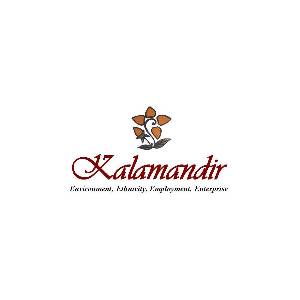About
-
Headquarters
Jamshedpur, Jharkhand
-
Since
1997
Kalamandir, a dedicated organisation, strives to protect and rejuvenate tribal art and culture. Its mission extends to encouraging an appreciation for Read more these traditions among individuals, communities, and social groups. Within the diverse milieu of Jharkhand, it faces the gradual decline of tribal culture due to mining, deforestation, apathy, corruption, and environmental decline. Its grand vision envisions a hunger-free society and empowered grassroots democracy. Its mission seeks to preserve and promote tribal art, culture, and heritage while nurturing aesthetics. It attempts to inspire the artistic sensibilities of both tribal and non-tribal youth, countering cultural homogenization. Operating primarily in East Singhbhum and Seraikela-Kharsawan districts, Kalamandir engages in multifaceted activities encompassing research on tribal heritage, acting as a resource centre, developing sustainable livelihoods, supporting traditional arts, capacity building, and youth training in various artistic disciplines.
Demographies Served
Cause Area
Programs
-
Promotion of Sustainable Livelihood through Micro-enterprise
In Janumdih village, East Singhbhum, tribal women excel in crafting Chatai (grass mats) using locally abundant Rhizobium Grass (known as Gondha or Sundhi). Since 2005, government agencies like DRDA, NABARD, Dept. of Welfare, and Dept. of Industry have supported the promotion, design, development, and marketing of these grass mat items, providing an alternative employment avenue for these women. Similarly, in Khunti/Bendh, Dokra items are promoted, designed, developed, and marketed as an alternative source of employment for Tribal and OBC Men and Women through the Department of Industry and Development Commissioner (Handicrafts), DRDA.
-
Revival & Promotion of Extinct Folk/Tribal Dance
In Derudih village, Seraikela-Kharsawan district, an endangered folk and tribal dance form, Kharsawan Chhau, received a revival boost thanks to the backing of the Dorabji Tata Trust. Meanwhile, in Janumdih Village, East Singhbhum District, the martial arts dance known as Firkaal Dance, belonging to a tribal community, was successfully rejuvenated with support from AID, Minnesota, and the Sangeet Natak Academy.
-
Artisan Support Programme
The Artisan Support Programme is a comprehensive initiative aimed at promoting and marketing tribal and folk arts and crafts. Its objectives include surveying and reviving extinct art forms, forming Self Help Groups and cooperative societies, facilitating livelihood generation through traditional arts and non-timber forest products, securing credit from banks for micro-enterprises, marketing handicrafts and forest products, capacity building for tribal artisans, promoting existing crafts and art traditions through presentations and performances, establishing eco-cultural tourism centres, skill development training, fostering synergy between human and natural resources, and documenting endangered art forms.
-
Capacity Building & Enterpreneurship Development Programme
Over the last four years, over 340 Self Help Groups (SHGs) have been established and are currently undergoing training in various essential areas. These training programmes encompass team management, financial management, strategic planning, sustainable livelihood practices, and the effective utilization of natural resources. Additionally, participants are learning the intricacies of marketing non-timber forest products (NTFP) and agricultural produce, equipping them with valuable skills for entrepreneurship and self-sufficiency.
-
Other Support
In rural areas, various forms of support are extended to artisans, dancers, and musicians to enhance their well-being. This support encompasses access to healthcare services, the provision of sanitation facilities, and the availability of clean drinking water. Additionally, efforts are made to ensure that children receive education, fostering their development. Moreover, financial inclusion is facilitated through savings, micro-credit opportunities, and access to insurance, contributing to the economic security of these individuals.
Leadership Team
M&E
-
Internal, External Assessors
No
Policies
-
Ethics and Transparency Policies
No
-
Formal CEO Oversight & Compensation Policy
No
Political & Religious Declarations
-
On Affiliation if any
No
-
On Deployment Bias if any
No
Registration Details
-
PAN Card
AACTK7985L
-
Registration ID
258
-
VO ID / Darpan ID
JH/2009/0001507
-
12A
Tech/CIT/JSR/Tech/VIII-15/01-02/5542-44
-
80G
F.NO.CIT/Tech/JSR/80G/2009-10/1089
-
FCRA
337820055
-
CSR Registration Number
CSR00006037
Location
Other Details
-
Type & Sub Type
Non-profit
Society
Website
Financial Details
-
2021-22
IncomeRs.25,869,855ExpensesRs.25,869,855Admin ExpensesRs.2,768,767Program ExpensesRs.23,101,088Tip: Click on any value above to exclude it. -
2022-23
IncomeRs.31,257,811ExpensesRs.31,257,811Admin ExpensesRs.1,846,020Program ExpensesRs.29,411,791Tip: Click on any value above to exclude it.



